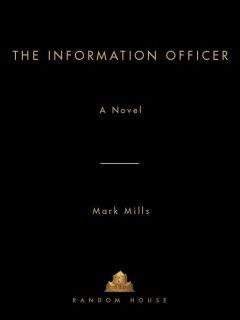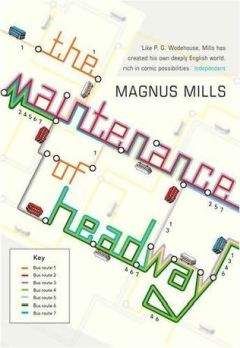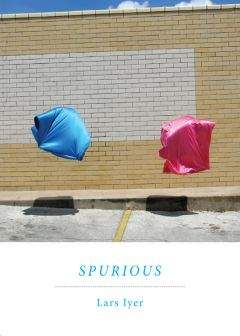Mark Mills - Amagansett
Who could blame him? There was a bunch of people poised to pounce all over him, eager for his version of events, should he survive. Hollis had made a point of charming the head nurse, a woman who concealed a good heart behind a lofty demeanor. She had finally relented, promising that he would be the first to know if there was any news.
The call came four days later, early in the morning, at Mary’s place, to which Hollis had decamped to avoid the overeager newspapermen staking out his house. When the phone rang, his head was thick with exhaustion, having hit the pillow only an hour or so before.
Abel and Lucy had come to dinner, and somehow they’d all found themselves seeing in the dawn. There was a lot to catch up on. Abel had been out of circulation all week, dealing with the commotion over ‘the photo’, as it was now referred to.
It had been bought many times over, syndicated around the world, and he was still reeling from the shock of what he’d achieved: the big picture, the photographer’s dream. True to form, Abel dismissed the image as a work of mediocrity, an instant of violence trapped on film, with little else to recommend it apart from a certain ghoulish appeal.
He was wrong. It somehow captured more than the moment, pointing to a deeper, more universal injustice: two well-dressed types gathered at the execution of a working man. Wakeley was frozen in the act of turning his head away and raising his arms protectively, an instinctive gesture, but one which seemed to imply he was washing his hands of the deed. Because of the angle, the gun wasn’t visible, but the muzzle flash was, shards of lightning exploding from Manfred Wallace’s fingers, a faceless figure clad all in black, unleashing a thunderbolt. There was something almost beatific about Labarde’s expression as he crumpled forward and to the right.
They said all this to Abel, but he stuck to his guns. He much preferred the shot of Hollis putting the boot into Manfred Wallace, a print of which he had also brought along with him by way of a gift—the only one in existence, framed in oak. Mary remarked that the look of hatred on Hollis’ face scared her, and Abel told her that that was the point. It was the one time he’d seen the real Hollis, he said, the beast within; and he wanted her to know what she was letting herself in for.
Abel had a healthy mistrust of what was happening to him. Picture editors and agents, many of whom had never even bothered to return his portfolio, were now calling him at all hours of the day and night. He knew he had gotten lucky, stumbling on success in his own backyard. Later in the evening, he announced, a little drunkenly, that even if his career took off it wouldn’t change him as a person.
‘Oh go on, please,’ said Lucy, ‘just a bit.’
Their laughter woke up Edward, who shouted down from his bedroom window for them to put a sock in it.
Finally the dawn light crept overhead, revealing a low, feathery mist on the paddock. Abel and Lucy made a half-hearted offer to help clear up, heading for their car almost in the same breath. Hollis and Mary left the table as it was and went inside to bed.
After they had made love, they lay on their backs side by side, their fingers intertwined, drifting off to sleep.
Unexpectedly, Mary turned to him and kissed him passionately.
‘Mmmmm,’ he groaned.
‘Tom, there’s something you should know,’ said Mary ominously.
‘What?’
‘I want you to know this now, so there’s no confusion. I don’t think it’s the right thing to say, in fact I’m sure it isn’t, but seeing as it’s the truth and it’s not going to go away…’ She paused. ‘Besides, I figure we’re too old to talk around this kind of thing.’
‘We’ll be too old for anything if you don’t come out with it soon.’
‘I want another child, Tom.’
Hollis absorbed the news.
‘I understand,’ he said, ‘I really do. But I’m not sure they’re that easy to swap.’
‘I’m serious,’ she said, trying not to laugh.
‘I know.’
‘That’s why I kissed you.’
‘You thought you could swing it with a kiss?’
‘I thought it might be the last time.’
Hollis leaned toward her. ‘Well, let’s put that idea to bed,’ he said.
Two hours later, and after one hour’s sleep, the phone rang.
Mary offered to go with him, but he said it would be better if he went alone.
Labarde lay in the hospital bed, his pale, drawn features set in repose.
Hollis pulled up a chair and just looked at him.
Labarde opened a tired eye. ‘You look terrible,’ he said.
Hollis smiled.
‘They say I lost a kidney.’
‘Good thing they come in pairs.’
It was Labarde’s turn to smile.
‘Was I right to let him fire?’ asked Hollis.
‘You were right.’
‘You used me, you played me right from the start.’
‘You’ll get over it, Deputy.’
‘Tom.’
‘What, now we’re friends?’
‘No. I resigned.’
Labarde opened both eyes this time. ‘Yeah?’
Hollis nodded.
‘What’ll you do?’
‘I’ll find something.’
‘You’re staying around?’
‘Yeah.’
Hollis handed him two envelopes. ‘I took these from your place before they went through it.’
He had found the envelopes propped up on the desk against a water glass. One was addressed to Rollo, the other to someone called Sam Ockham.
Labarde looked at them, but didn’t take them. ‘You can throw them away.’
‘You sure you won’t be needing them?’
Labarde didn’t reply.
‘I’ll try and keep them off your back for a bit,’ said Hollis, ‘but there’s a stack of people want to see you.’
‘I guess.’
‘There’s been talk of a man, a man sent to kill you. Seems he turned up dead in the Wallaces’ pool with a bullet in his head.’ ‘I wouldn’t know anything about that.’
‘That’s the story to go with,’ said Hollis. ‘Just make sure you stick to it. The DA’s blood is up right now, he’s capable of anything.’
‘Thanks.’
‘There’s another thing. Manfred Wallace is saying Lizzie Jencks stepped into the road in front of the car.’
‘How does he justify killing his sister?’
‘I think he’s telling the truth.’
He’d been sworn to secrecy, but Labarde was the one man who had a right to know. Besides, Hollis needed his advice.
He told him what he’d learned from Joe the time he drove out to Springs: how a girl from a poor Bonacker family would have had little choice, how the Jenckses and their kind had been in the thrall of the wealthy Amagansett clans since the very earliest days, reliant on them for work, charity even, during tough years. It was a relationship open to abuse, and there’d been plenty over the years. Joe said he could list a whole load of them, payment taken in kind from families with nothing else to offer besides their womenfolk. He said he could point out the sons and daughters of gentry fathers brought up in Bonacker homes. He said Hollis was sitting across from one, although he didn’t go into details.
Hollis protested that that was then and this was now. Girls didn’t go around giving themselves to men just because they demanded it.
‘It’s 1947, for Christ’s sake.’
‘No need to bring him into it,’ said Joe sternly.
‘You know what I mean.’
‘I know things move slow out here.’
‘Did her parents know?’
‘Not till after. The brother did, he was the one pushed her to it. He liked the cards more’n they liked him. He needed work fast, the cash kind. His pa near killed him when he found out.’
Well, that explained why Adam Jencks had gone south.
‘It’s one of them things, is all,’ said Joe. ‘Ain’t nothin’ going to bring her back. It’s all arranged now.’
‘How’s that?’
‘Put it this way, the Jenckses ain’t makin’ the payments on the house right now.’
‘Oh, that’s great, everyone’s happy.’
‘I ain’t sayin’ that.’
‘Who was it, Joe?’
‘I ain’t sayin’ that neither.’
Labarde had listened in silence to Hollis’ account of the conversation. ‘Well…’ he now said.
‘You know who it is, don’t you?’ said Hollis.
‘No.’
‘But you’ve heard something.’
‘No.’
‘You’re lying.’
‘You don’t understand. There’s those who’ve been here for ever. Then there’s the rest of us.’
‘None of this would have happened if Lizzie hadn’t been out that night. It all springs from that. I believe Manfred Wallace. She stepped in front of his car.’
‘You caught him. Be happy with that. It’s enough.’
Labarde closed his eyes. ‘I’m tired,’ he said.
‘Sure.’
Hollis got to his feet and placed the chair against the wall.
‘Oh, Gayle Wallace came by a few days back.’
‘Gayle Wallace…?’
‘To see how you were doing. She’s gone now. I just thought you should know.’
Hollis walked to the door, then turned.
‘It’s good to meet you,’ he said. ‘Finally.’
But Labarde had already drifted off.
Forty-Two
The wind swept down on them out of the north, spraying the beach with stinging sand whipped from the frontal dune. Beyond the breakers, the ocean was hard, cold, granite gray.
They eased the dory off the trailer into the wash, its gunwales filmed white with frost. While Rollo tended to it, Conrad pulled the Model A up the beach, the sand chattering against the windshield.
As he climbed down from the cab a figure appeared on the crest of the dune. It was Ned Kemp, dressed in waders, oilskins and a wool-knit cap.
‘Cap,’ said Ned, approaching.
‘Cap.’
‘Some blow.’
‘Sure is.’
Ned looked at his boots, then up again, the stubble showing white against his chin, the awkwardness hanging heavy between them. They’d just exchanged more words than they’d managed in the past few months put together.
‘You done good,’ said Ned. ‘You done what you had to, but you done it right. Even made us look good.’
‘It wasn’t planned. That’s just the way it turned out.’
‘That’s what you say.’
Ned looked past Conrad to Rollo struggling with the dory in the wash.
‘Lost his voice around the home. Can’t hardly look at me.’
‘What are you doing here, Ned?’
Ned turned back, squinting his tired eyes.
‘I come to see my son,’ he said.
Rollo shifted uneasily as they approached, looking every which way but theirs.
‘There’s a fellow here wants to know if he can lay trawl for us,’ said Conrad. ‘What do you reckon?’
Rollo shrugged, trying to look indifferent. ‘I don’t know. What do you reckon?’
‘Oh…I reckon every greenhorn’s got to learn somewhere.’
Rollo beamed nervously at his father’s affronted scowl. ‘Sure,’ he said. ‘Why not?’
They clambered aboard the dory and took their places at the oars. Ned pushed them into deeper water, holding the stern steady, eyes on the breaking seas.
‘I heard you was thinking of going to college.’
‘Figured I’d stick around instead,’ said Conrad.
Ned peered past them, reading the waves.
‘Fishing don’t teach you much,’ he said, ‘but it do teach you you don’t need much.’
A large wave broke under the dory.
‘Go, boys, go!’ yelled Ned, pushing off and dragging himself over the gunwale.
The oars bit, the dory sprang forward, rising steeply, its high, sharp bow splitting the face of the capping sea, carving a passage through.
ACKNOWLEDGEMENTS
This book would never have been written were it not for two people: Stephanie Cabot, my agent and my friend, who urged me to take the idea further; and my wife, Caroline, who supported and encouraged me while I did so. Special thanks are also due to Nick Shevloff and Christina von Schilling, who first introduced me to the South Fork of Long Island and who have provided me with a home-away-from-home there ever since.
I owe an enormous debt of gratitude to my editors, Julia Wisdom and Jennifer Hershey, for their unstinting enthusiasm and their expert guidance.
Among the many books I found useful in the writing of this work I would like to make particular mention of Peter Matthiessen’s Men’s Lives, John N. Cole’s Striper, Everett T. Rattray’s The South Fork, and The Pond in the Pasture by Capt. Edwin Sherrill, Jr. Other invaluable sources were the excellent online archives of the East Hampton Star, as well as The History Project Inc.—an extensive collection of taped interviews with local people, many of whom have now passed on. My thanks to Tony Prohaska and Martha Kalser for providing this extraordinary oral resource, which is housed in the East Hampton Library.
A great sadness to me during the writing of this book was the death of John N. Cole—a guiding light in my research, who, together with his wife, Jean, welcomed me into their home in Brunswick, Maine. I hope that in some small way John’s spirit lives on in these pages.
Others who gave generously of their time and expertise are Stuart Bennet Vorpahl and his wife, Mary; Peter Matthiessen; Carleton Kelsey; Capt. Harvey L. Bennett; Capt. Edwin Sherrill, Jr; and local librarians, Diana Dayton and Dorothy King, who patiently steered me through the wealth of material contained in the Pennypacker Long Island Collection. I am also extremely grateful to Katie Allen and Paul Sisson for their hospitality; Nicola Levy; Simon Prosser; Philip Gwyn Jones; Tom Weldon; and Anne O’Brien.
Finally, my thanks go to Ileen Maisel, who gave me my first ever break as a writer.
Copyright
Fourth Estate A Division of HarperCollinsPublishers 77-85 Fulham Palace Road, London W6 8JB
www.4thestate.com
1 3 5 7 9 10 8 6 4 2
Copyright © Mark Mills 2004
Mark Mills asserts the moral right to be identified as the author of this work
This novel is entirely a work of fiction. The characters and incidents portrayed in it are the work of the author’s imagination. Any resemblance to actual persons, living or dead, events or localities is entirely coincidental.
All rights reserved under International and Pan-American Copyright Conventions. By payment of the required fees, you have been granted the non-exclusive, non-transferable right to access and read the text of this e-book on-screen. No part of this text may be reproduced, transmitted, down-loaded, decompiled, reverse engineered, or stored in or introduced into any information storage and retrieval system, in any form or by any means, whether electronic or mechanical, now known or hereinafter invented, without the express written permission of HarperCollins e-books.




